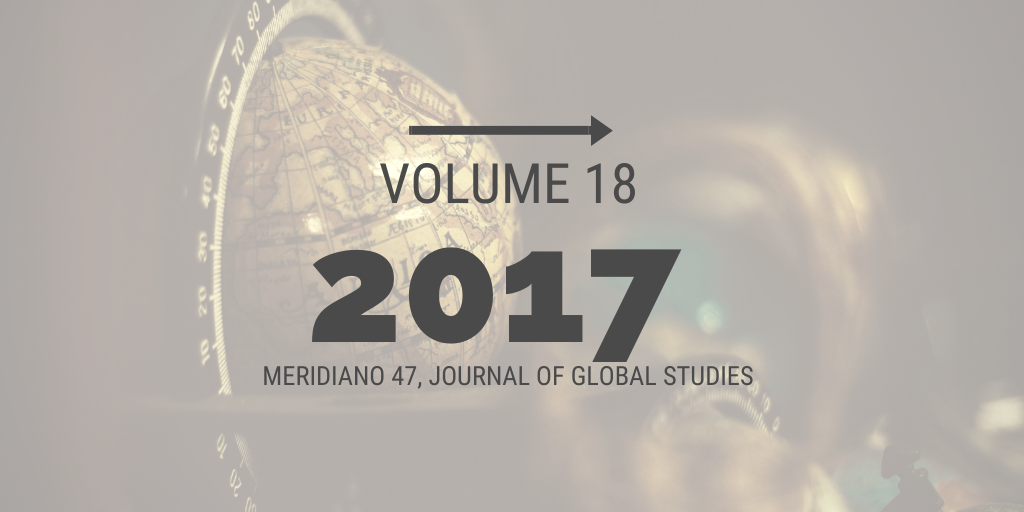Comparing Strategies for the Operationalization of Variables in International Relations
the measurement of national power capabilities
Keywords:
Capacity Measurement, National Power, Power Formulas, CINC, CNPAbstract
The present paper investigates the connection between theories and empirical research methods in International Relations. From the study of the theoretical concept of power, it compares different strategies of operationalization of its variables. The formulas of power and indices of national capabilities are analyzed We conclude that national capabilities measurement strategies can be useful pedagogically for the teaching and research in the field of International Relations.
Downloads
References
ANGANG, Hu; HONGHUA, Men. “The Rising of Modern China: Comprehensive National Power and Grand Strategy”. Strategy & Management. n. 3, p. 1-36. 2002.
ARON, Raymond. Paz e Guerra entre as Nações. Editora Universidade de Brasília: Brasília. 2002.
ART, Robert J. “The Fungibility of Force”. In: The Use of Force Military Power and International Politics, ART, Robert J. WALTZ, Kenneth N. (ed). New York: Rowman & Littlefield, 1999.
BALDWIN, David A. “Power and International Relations”. In: Handbook of International Relations, CARLSNAES, Walter, RISSE, Thomas, SIMMONS, Beth A. (ed). London: Sage Publication. 2003. p. 177-191.
CASTRO, Therezinha de. Geopolítica: princípios, meios e fins. Rio de Janeiro: Biblioteca do Exército Editora. 1999.
CHANG, Chin-Lung. A Measure of National Power. Conference Paper. Bangi: The National University of Malaysia. Disponível em: <http://www.analytickecentrum.cz/upload/soubor/original/measure-power.pdf>. Acesso em 28 de Março de 2017.
CHUWATTANANURAK, Wuttikorn. 2016. China’s Comprehensive national Power and its implications for the rise of China: reassessment and challenges. Paper apresentado na CEEISA. Disponível em: <http://web.isanet.org/Web/Conferences/CEEISA-ISA-LBJ2016/Archive/01043de7-0872-4ec4-ba80-7727c2758e53.pdf>. Acesso em 28 de Março de 2017.
CLINE, Ray S. The Power of Nations in the 1990s: A Strategic Assessment. Lanham: University Press of America. 1994.
FORD, Christopher A. China looks for the west: Identity, Global Ambitions, and the Future of Sino-American Relations. The University Press of Kentucky. 2015.
FREEDMAN, Lawrence.. “Strategic studies and the problem of power”. In Strategic Studies: a reader, Joseph A. Maiolo, Thomas G. Mahnken (ed). New York: Routledge. p. 22-33. 2008.
GREIG, J. Michael; ENTERLINE, Andrew J. 2017. National Material Capabilities (NMC) Data Documentation, Version 5.0. Correlates of War. Disponível em: <http://cow.dss.ucdavis.edu/data-sets/national-material-capabilities/nmc-codebook-v5-1>. Acesso em 27 de Março de 2017.
KING, Gary; KEOHANE, Robert O.; VERBA, S. Designing Social Inquiry. Princeton: Princeton University Press, 1996.
MEARSHEIMER, John J.; WALT, Stephen M. “Leaving theory behind: why simplistic hypothesis testing is bad for International Relations”. European Journal of International Relations. v. 19, n. 3, p. 427”“457. 2013.
MELLO, Leonel Itaussu Almeida. Argentina e Brasil: A Balança de Poder no Cone Sul. São Paulo: Annablume. 1996.
ROCHMAN, Alexandre Ratner. “A avaliação de poder nas relações internacionais”. Lua Nova, n. 46, p. 119-134. 1999.
SARADZHYAN, Simon. 2016. “No, Russia is not in decline ”“ at least not any more and not yet”. Fortuna’s Corner. Disponível em: <http://fortunascorner.com/2016/04/29/no-russia-is-not-in-decline-at-least-not-any-more-and-not-yet/>. Acesso em 27 de Março de 2017.
SINGER, David, BREMER, Stuart, STUCKEY, John. “Capability Distribution, Uncertainty, and Major Power War, 1820-1965”. In Peace, War, and Numbers, RUSSETT, Bruce (ed). Beverly Hills: Sage, 1972. p. 19-48.
SINGER, J. David. “Reconstructing the Correlates of War Dataset on Material Capabilities of States, 1816-1985”. International Interactions, v. 14, p. 115-132. 1987.
SOARES, Gláucio A. D. “O calcanhar metodológico da Ciência Política no Brasil”. Sociologia, Problemas e Práticas, n. 48, p. 27-52. 2005.
TREVERTON, Gregory F.; JONES, Seth G. Measuring National Power. Conference Proceedings. Santa Monica/ Arlington/ Pittsburg: Rand Corporation. 2005.
VAN EVERA, Stephen. Guide to methods for students of Political Science. Cornell: Cornell University Press, 1997. p. 1-48.
XUETONG, Yan. “The Rise of China and its Power Status”. The Chinese Journal of International Politics, v. 1, n. 1, p. 5-33. 2006.
XUETONG, Yan. The Rise of China and Its Strategy. Peking University Press. 2005.



